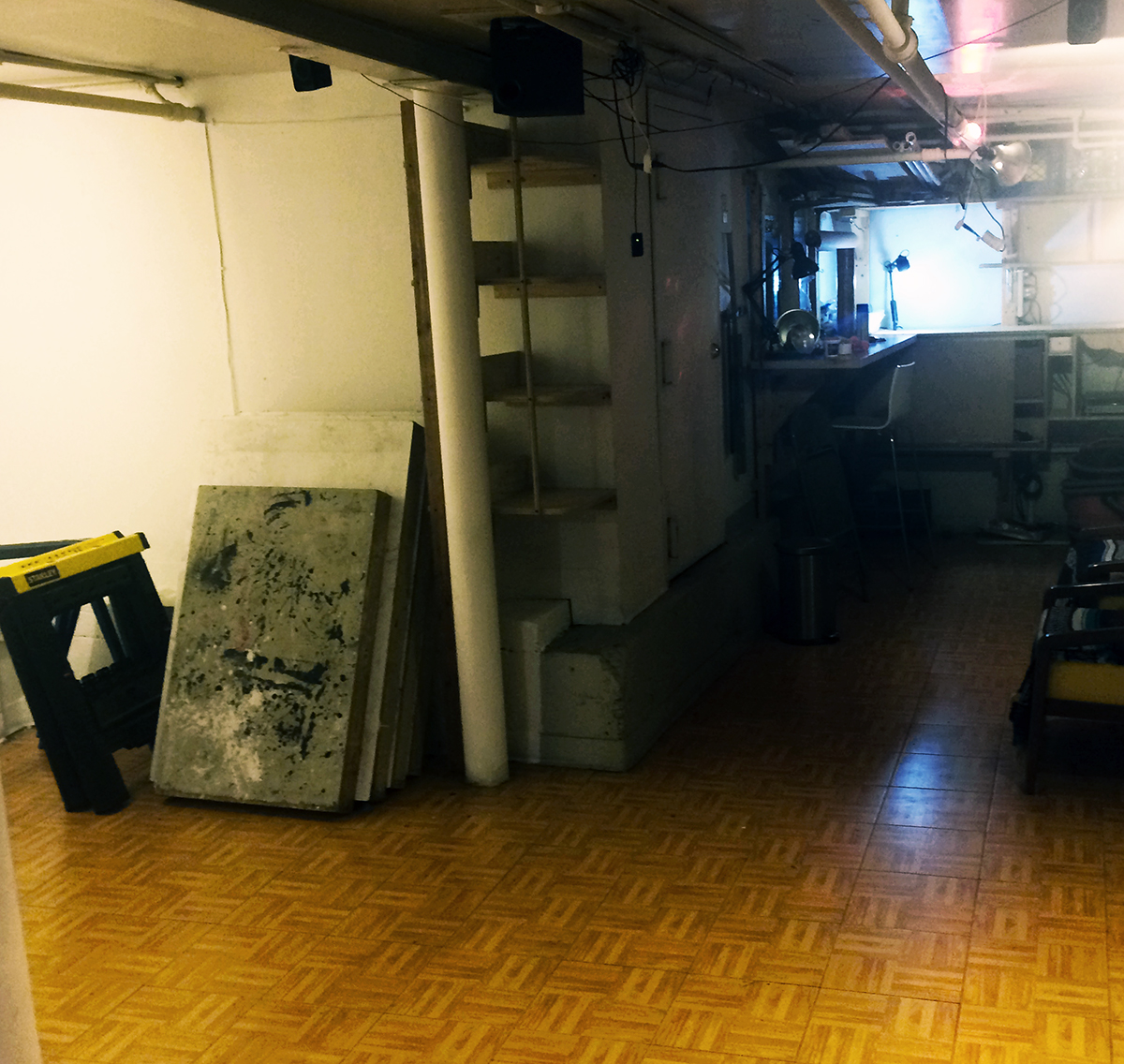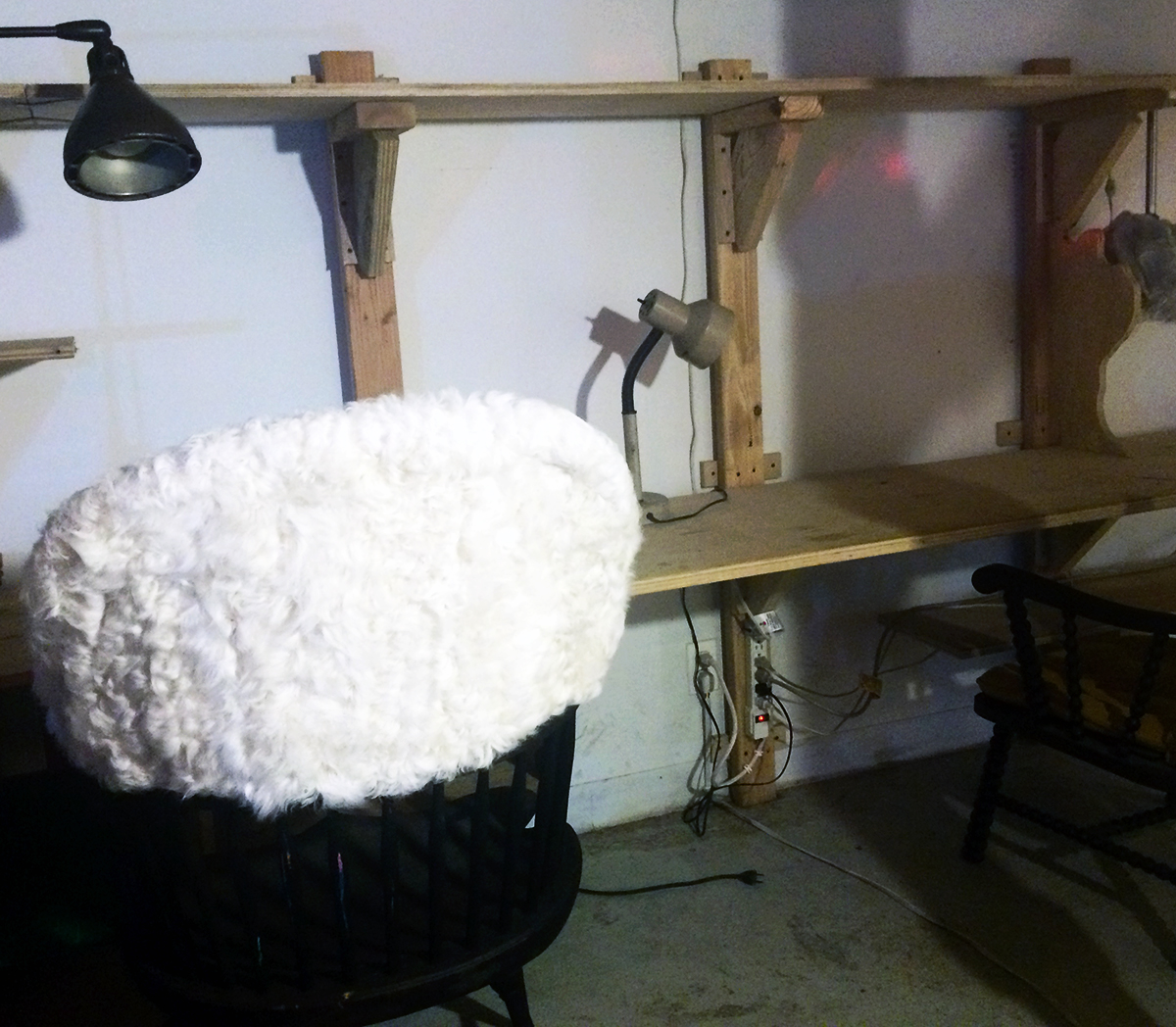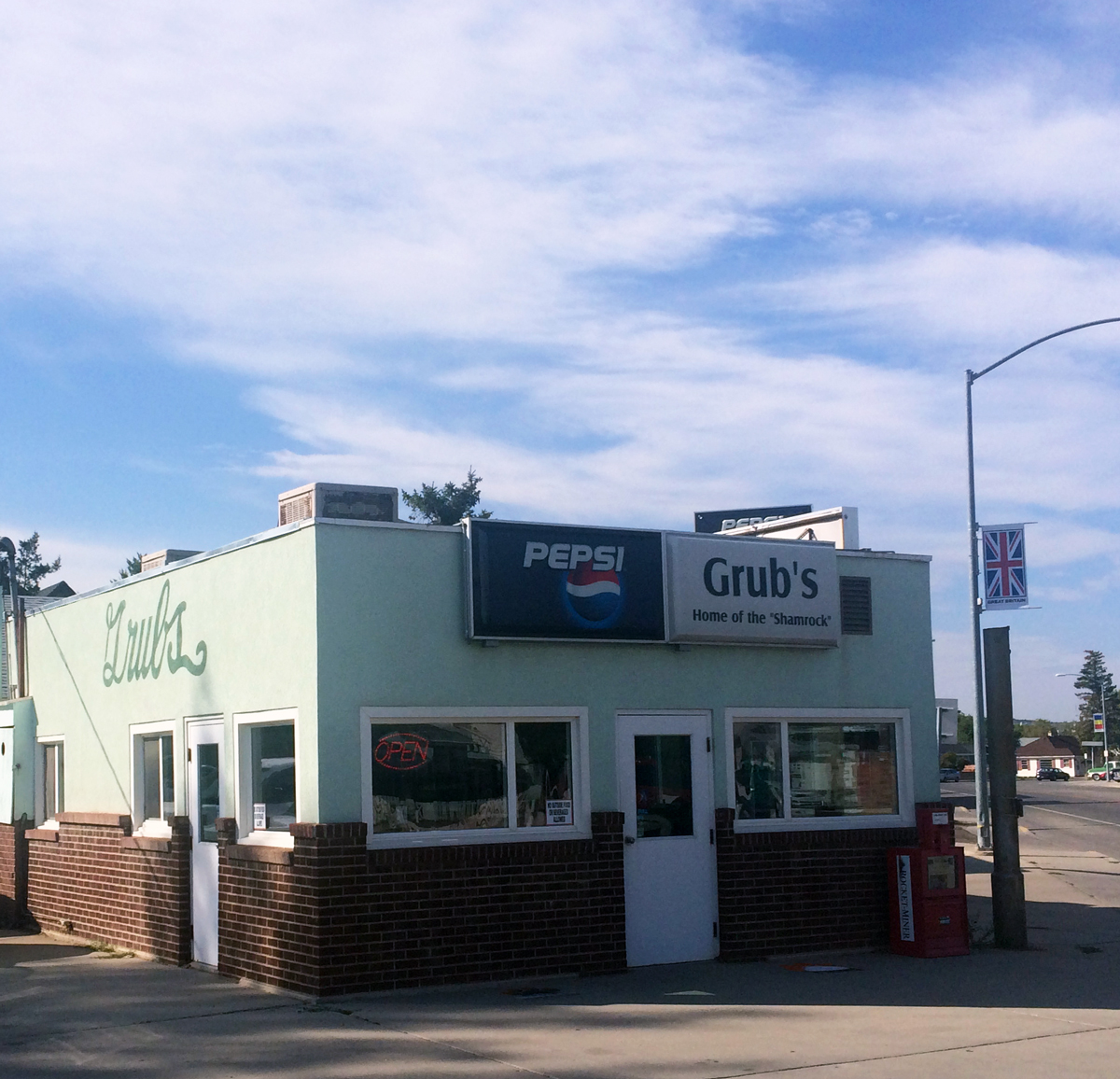AFHstudioBK Is Closed.
The move-out was completed on August 30th, but preparations occupied much of the month, which the road trip from Bushwick to Oregon interrupted. I have learned that every studio opening and closing possesses a unique flavor and resonance. Each produces a particular sensation that will eventually congeal into a narrative, with attaching summary, list of evocative memories and notable anecdotes. Some get a soundtrack. Moving my studios over the years from room to room, building to building, state to state, etc., has reinforced an awareness of the physical nature of art. Achy back, damaged hands, bruises and bumps, sleep deprivation - all are symptoms of the studio move. The raw 269 Powers [BK] moves were accomplished with the help of Metropolis Moving, and my Godkid Misha, but I still did the prodigious prep work, alone. The artist life involves un-romantic scenarios galore, that may look fine in a montage. The sort of psychic upheaval that attends the shuttering of an atelier is difficult to adequately translate to fictional and illusory media. Maybe VR will be a better medium for capturing the transitional state of artists whose labor has no permanent home. I have known some artists who settled in studios for decades at a time. When I was working for LA Packing, Crating and Transport (that's me on the short ladder in the pic/slideshow on the LAPC&T site front page installing Jonathon Borofsky numbers), I was on a crew helping break down Sam Francis' studio after his passing. It was a huge job. Sam employed a crack team of top-shelf logistics people. We coordinated with them. The atmosphere was palpable, visceral and tangible. I don't know how to adequately frame it, and won't try. I don't like the idea of being a tourist for that singular project. I participated on a few operations, picking up monumental-sized canvases, disposing of materials, and so on, but there were many others other guys handled. That job installed in my mind a perception of artist ghosts who haunt studios and the people who enter the haunts of artists, living and dead.
Traversing America [Again]
I am consistently stunned when someone reveals to me in conversation that they have never taken to the USA highway system (red + blue) and explored this country by automobile. The span of the nation is contained in the proverbial road trip in a way that's inaccessible by plane, bus or other mode of transportation. I would contend that a working comprehension of America is not complete absent the cross-country driving experience. Each traversal of the US by car is fraught with danger, mystery, wonder and a range of often conflicting phenomena. Music is an essential component. Maps also. A navigator is the proper foil for the driver's task. Monuments, diners, marvelous landscapes and a sequence of encounters with local characters define the journey to some extent. The time element is a contiguous presence. If there is a mission, that colors the trip. If one is adrift, or otherwise actively not directed by motivation or intent, the road tripper generates a speculative circumstance for the trek. Whether one is a practitioner or novice on the Road clearly affects the receptivity of the traveler to external and internal momentum/inertia, or entropy. Tensions and capacity (i.e., endurance) play within the dynamic unfolding of every long form transnational crossing. Shane Kennedy and I have shared the road together often over the past couple of decades, in all sorts of vehicles and conditions. This most recent iteration of the Epic USA Bi-Coastal Ride, originating in Bushwick and culminating in Astoria, OR (actually Portland by PDX), will I believe rank highly on the Best of- list. Technically, glitches were rare and minor. In keeping with the protocols of the medium, most of the details will remain our own treasure. If the American Road Trip is not art, at minimum it is art worthy. The experience is a form of saturation, in the context of conditioned programming. Like any 4D proposition, it is specific and unrepeatable. I am thinking of Lewis & Clark, the Oregon Trail, but also Kerouac, and some bards, too. I am also thinking about the state of the country I love, and that love has been shaped over time by the Road Trip, which at this point in my life has expanded into a sequential order, a serial affair, a sensational mix of countless moments and layered images. No one can understand my art and person, absent acknowledgement of the Road's effects upon it. The fool who discounts the import of the Road on the American culture and consciousness will be frequently shocked by the citizen's dimensional, sophisticated perspective on machine-enabled coming & going, day & night. The soul of those uninitiated in the US Highway, its weird dreams and harsh reality, is shallow and unequipped to analyze the nation's modern sons and daughters.
Sale Graphic by PJM [Credit: Little Yellow Miner + Canary by Bryce McCloud of Isle of Printing for SEAM01 at TAG (Nashville, 2001)]
Starting September with a Labor Day Sale at Good Faith Space!
Our new tagline at GFS is "GET SOME!" Thoughts?
State of the Artz Section
Much of the summertime art news in 2018 ping pongs among talking points that in many aspects don't reconcile. The collapsing mid-range economy for art (in the West, anyway) will not be adequately supplanted by photo-op mills that are branded "museums," nor will Basel announcing progressive booth pricing solve the inequality among the Art Bigs like Gagosian and everybody else. Tech art is still a bizarre wrinkle in the fabric of culture. Bruce Sterling's SXSW 2018 (above) keynote reveals much about the emerging field, which in parts is swiftly normalizing [see SRL at the Seattle Art Fair, now directed by Nato Thompson (Can you find Bruce in the article - the dude's all over the place!)]. The real subtext here is that the tech sector is consolidating wealth and power at an alarming rate, so much so that the other social sectors (political, military, police, etc.) are pivoting to reign in the advance of Big 5 mega-corporations through diverse approaches. "Art" is traditionally a means by which the rich and powerful elites diffuse animosity from those who are distressed by the control of massive resources by a fortunate few individuals and companies or syndicates. Sterling's exhortation seems well-enough defined to serve as a practical guide for pushing a tech-art movement into and through the budgets of major players. Clearly, the programming of "art" into tech-evolution is a prospect that is nothing new. It can be tracked at least as far as Leonardo, and arguably the Greeks, which Kittler and others have pointed out. The question is whether any artifying of tech apps (robots, social media, Big Data, etc.) will adequately soften a public that is threatening to turn on the various fields of science and technology that are producing obviously negative effects in the lives of so many people. Are art/tech hype campaigns like THIS in any manner really digestible as real solutions? The shine of ubiquitous, useful "toys" for network communications, computing and connecting People to Things and Things to each other is quickly wearing off. Will art polish tech's dangerous edges? I don't know, but I found a book that I hope clarifies my projections of our tech-affected collective future (enthusiastically recommended by Bruce Sterling and SF/Tech Thinker Bigs like William Gibson & Rudy Rucker):
Frankly, I am bemused of the general confusion expressed by analysts who refuse to acknowledge the stark lessons and unequivocal systemic information uncovered through the dimensional movements of the past decade (mainly OWS, Bernie's Presidential campaign, Standing Rock, but also plenty of others, appearing and disappeared around the globe). The precarious state of most of the art world parallels the precarity of democracy itself, of the economy, of international relations, etc. Nature itself feels very precarious and menacing simultaneously (for humanity, anyway). The primary problems have been accurately identified. Actionable orders are obvious. Precedents demonstrate that the necessary changes are not only feasible, but proven effective. Anyone pretending otherwise now, or falling for any of the distractions pushed by those in great measure responsible for our big problems, and who derive great benefits from those problems remaining unsolved ~ well, pretense itself has become intolerable, and pretenders, too. Talk about Fake.
"Wings" ~ graphic for CD design (ca. 2003, PJM)
On Leaving NYC and Moving to Oregon
Many have breathlessly inquired as to the nature of our migration from Brooklyn to the Northwest coast. On the NYC side, the quality of the inquiry is almost invariably hued by a peculiar cognitive disjunction, which might be characterized as disbelief in the possibility that such a dramatic relocation is possible, wise, even conceivable. More than anything the inquisitor is basing the incredulity on rudimentary assumptions and cultural projections. Why would someone choose small town living over the cosmopolitan offerings of an international destination and trendy hot spot like Bushwick? Did I not notice the movie set on the street in front of our loft building this morning, or the runway models wandering in robes, under umbrellas through the neighborhood all day? Will I not miss the easy felafel dinner option we are enjoying from a couple blocks down, by the House of Yes, next to the Jefferson St. L stop (~ Queen of Felafel)? Shane and I discussed this sort of interrogation by confused New Yorker friends and acquaintances at some length on our road trip. It is symptomatic of a certain stultifying mindset among what I would call captured or captive persons, many of whom will express amazement that anyone could think to leave the city with one sentence, and follow that sentence with a dozen more describing the horrid aspects they despise, which definitely accompany NYC/Brooklyn life. The truth is, my list of things I will miss about NYC/BK is short, and the list of things I will not miss is long. Mostly, it is not things I will miss, but people whom I have grown to love and value over the past eight years of being a New Yorker. I have resided, visited and worked in a fair sample of American communities and a few abroad. A spectrum of experience in congregations big and small, rural and urban, tribal and civilized, productive and destructive, virtual and actual, affords me (I hope) an accurate sense of cost-benefit, with respect to home. At least for the moment, an American citizen can still up and move to another part of the country and start fresh, hoping to improve her or his life and circumstances. That is exactly what we are up to. The proposition is alternately scary and exhilarating, and both feelings are moderated through healthy doses of research, planning and logistical know-how. I won't share my special secret for navigating big change in locus here ~ it's not the proper forum. But I will say I believe we all ought to be in the right place at the right time to do what needs doing. Which is one definition of courage. Still, speaking for myself for emphasis, the people one leaves behind tug at the heart most. It helps to have confidence that new friends await on the opposite end of this beautiful, myriad continent.







![Sale Graphic by PJM [Credit: Little Yellow Miner + Canary by Bryce McCloud of Isle of Printing for SEAM01 at TAG (Nashville, 2001)]](https://images.squarespace-cdn.com/content/v1/501abbd4c4aaab20160f16af/1536088002060-VEVYHJ1J944XPE1LRSXW/laborday.jpg)


